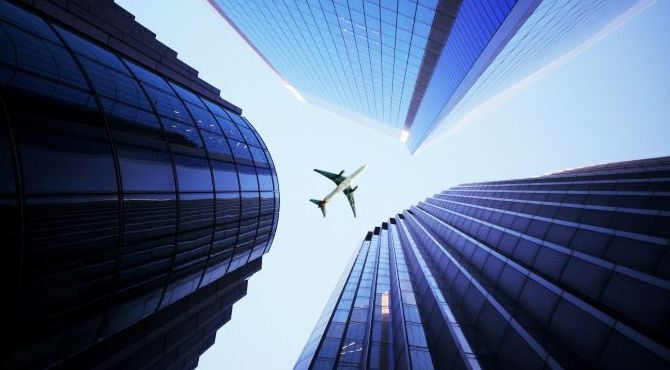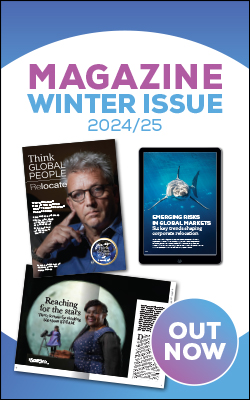Britain’s visa system is going digital: what steps should you take?
The UK’s immigration system is undergoing a digital transformation this year and there are two aspects the government is keen you should know about. Those currently using physical documents to prove their immigration status will need to transition to the eVisa by the end of the year. In addition, visitors who don’t need a visa to enter the UK on a business or leisure visit will need to apply for the new Electronic Travel Authorisation (ETA) before travel.

The latest issue of Think Global People magazine is out now!
Who will need an eVisa?

Read related articles
- Staying safe from immigration scammers
- Britain’s Autumn Budget Exodus: Data Reveals That It’s Not Just Millionaires Leaving The UK
- Good news for universities and international students as Migration Advisory Committee recommends UK retains the Graduate visa
Applying for the UK’s new eVisa
BRP holders can create a UK Visas and Immigration (UKVI) account to access the new eVisa on the www.gov.uk/eVisa website. There is no cost. They will need their BRP number or alternatively, the Unique Application Number (UAN) from their last visa application, as well as a valid passport or identity document. The ‘UK Immigration: ID Check’ app is then used to confirm identity on a tablet, smartphone or laptop before filling out a short application form to link the UKVI account to an eVisa. Applicants should receive an email a few days later confirming their digital eVisa is available. I would advise checking it works before travelling out of the UK.Holders of older legacy paper documents such as ink stamps and visa vignettes, those whose passports with stamps in are lost or expired plus anyone who has tried to register for an eVisa customer account but their details cannot be found on the Home Office system will need to first make a free ‘no time limit’ (NTL) application. This can then be used to create a UKVI account. The process may take around three months, so I would advise applying sooner rather than later.What do employers need to know about the eVisa?
Employers must always keep on top of changing UK right to work practices as well as the dates when employees’ right to work expires. I recommend regular audits. If an employer’s records show a work visa is valid beyond the expiry of an employee’s BRP on 31 December, it is not generally necessary for the employee to transition to an eVisa. However, if the right to work check only involved checking the BRP – which was acceptable procedure up to guidance changes in April 2022 - a worker should transition to an eVisa in order to prove their right to work beyond the end of this year.What help will elderly and vulnerable people have with the change?
Many have expressed concerns about the estimated 200,000 older residents with old-style passport endorsements or vignette passport stickers who risk being caught out by the 1 January 2025 deadline. The Home Office faces a major challenge ensuring that elderly, vulnerable people, anyone with difficulties accessing technology or understanding the language are all fully aware of the digitalisation of their status and able to access an eVisa. To support them, £4 million is being made available to organisations such as Migrant Help, Citizens Advice Scotland, the Welsh Refugee Council and Advice NI. A list of community support available will be updated as more organisations are added.The Immigration Law Practitioners Association and the3million campaign group are collating evidence of problems people are experiencing transitioning to a digital status and proving their rights on this online reporting tool to enable any improvements for the roll-out.Who will need the new Electronic Travel Authorisation (ETA)?
Most nationals require a visitor visa for short trips to the UK such as tourism, visiting family, attending events and business trips. So-called non-visa nationals from countries such as the USA, Canada, Australia, Japan and European Union nations don’t need a visitor visa. However, they will now need prior permission in the form of a digital application for the Electronic Travel Authorisation (ETA) to enter the UK as a visitor, a Creative Worker (for up to three months) or even just for transiting in UK airports. The British government says this will be an efficient way to ensure border security.Last autumn the system opened to Qatari nationals travelling to the UK before extending to nationals of other Gulf states. The ETA application process will open on 27 November 2024 for USA, Australia, Singapore and other non-European nationals who do not require a visa and intend to travel to the UK on or after 8 January 2025. The process will then extend to EU and other non-visa European nationals on 5 March 2025 for visits to the UK on or after 2 April 2025. The full lists of nationalities can be found here.There is no need for an ETA for anyone settled, British or Irish Citizens, British Overseas Territory Citizens, those with entry clearance, permission to enter, or permission to stay (such as a Skilled Worker visa, for instance), people who are exempt from immigration control or third country non-visa nationals who lawfully reside in Ireland and are travelling to the UK to visit from somewhere else in the Common Travel Area.Applying for an Electronic Travel Authorisation
The ETA is much like the ESTA for the USA or the new ETIAS authorisation which will soon be needed for travel to Europe. The ETA costs £10, permits multiple journeys within the UK visitor rules and is valid for two years or until the holder’s passport expires – whichever is sooner.Applications can be made through the UK ETA app or by filling an online form. Applicants should receive a decision within three working days, but it may occasionally take longer.You can find more details about the eVisa and ETA here.Vanessa Ganguin is the Managing Partner of Vanessa Ganguin Immigration Law.

Find out more about the Think Global People and Think Women community and events.

Subscribe to Relocate Extra, our monthly newsletter, to get all the latest international assignments and global mobility news.Relocate’s new Global Mobility Toolkit provides free information, practical advice and support for HR, global mobility managers and global teams operating overseas.
©2025 Re:locate magazine, published by Profile Locations, Spray Hill, Hastings Road, Lamberhurst, Kent TN3 8JB. All rights reserved. This publication (or any part thereof) may not be reproduced in any form without the prior written permission of Profile Locations. Profile Locations accepts no liability for the accuracy of the contents or any opinions expressed herein.





































